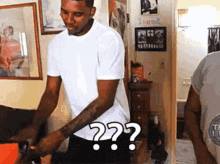this is because we've had a fundamentally broken government for basically my entire life.
Still, the US probably has the most democratic system around, currently - let alone for a country of hundreds of millions of people.
this is because we've had a fundamentally broken government for basically my entire life.
Still, the US probably has the most democratic system around, currently - let alone for a country of hundreds of millions of people.
Still, the US probably has the most democratic system around, currently - let alone for a country of hundreds of millions of people.


On what basis?
Are you serious? America is better than Indonesia and is therefore the most democratic country on earth ?Wouldn't even the second half of the post be enough to deter you? Anyway, you might prefer Indonesia.
Are you serious? America is better than Indonesia and is therefore the most democratic country on earth ?
I prefer America to Indonesia. I dunno if it has the most democratic system around, though. I imagine some non-EU(don’t have to follow Brussels) Western European countries could give the US a run for our money.You are asking me if I am serious, and then present the above as what I posted.
I prefer America to Indonesia. I dunno if it has the most democratic system around, though. I imagine some non-EU(don’t have to follow Brussels) Western European countries could give the US a run for our money.
People are emotional about the ruling. At least momentarily, I don’t think it’s expected many Americans are going to have a sunny outlook on government.
While trying to maintain neutrality, I would say yeah, I still feel pretty fortunate to be American.
Still, the US probably has the most democratic system around, currently - let alone for a country of hundreds of millions of people.
I could debate, and bring up numerous problems that hinder democratic expression in the US, but I expect numerous others will be happy to do so.Regardless of problems in the US, it is impressive (and the only case) that a country of 1/3 of a billion people, still functions democratically (which was my point, and not that cryptically either). In the end, though, some states clearly sail towards a different port.
Democracy is power to the people. Not just power to a subgroup of the people, even if that subgroup forms a majority. For the people to have power, all people must be able to participate in the decision-making - and that only happens if the the rights of those outside the majority are safeguarded, so that they are free to act, and the powers of the majority consequently limited - otherwise the majority can take their power to silence all opposition and rule as a new oligarchy, and democracy dies.
America has abolished one by one restraints on the power of their predominant social group, concentrating power in their hands, and as a direct result deprived countless citizens of their right to vote, created enough hurdles to votes that far more can't afford to, have created electoral boundary that allows the haves to keep power even without a majority of the vote,
It's a partial democracy at best, and a failing if not failed one at worse. Far from the the most democratic nation.
The moment the rights are not safeguarded for all, the power to vote of some begin to fade, and the notion that all have power to vote still vanishes.
Yes, what you describe was the initial theory of democracy. Which was immense progress for its time, but that was 2500 years ago. It is completely, utterly outdated now. Clinging to it as more democratic is the equivalent of claiming a biplane with balsa structure and paper wings is "more a plane" than a 787.

Democracy literally is a system where everyone who has the identify of citizen (part of the Demos) has power - to vote. While it can be theorized just what safeguards there should be, the actual system is outside and distinct from such.
You may have heard people arguing that (for example) if minority rights are not given primacy in the system, it can devolve to ochlocracy - but that itself isn't a political system, merely a dismissal of popular vote when it leads to rulers/laws one may not like.
Oligarchy is not the result of minorities not protected, although it may very easily feature such phenomena too. And (of course) there are various oligarchies operating within current democracies, including (but not limited to) the case of the US.
More progressive doesn't mean more democratic; democratic ties to popular voting and representation playing a meaningful role. If (say) some very conservative US state became (hypothetical) its own country, and it was very democratic, you'd expect its laws to become more conservative than those of the current US.
An example of a country that arguably is more democratic, but far more conservative, would be Switzerland.
America has abolished one by one restraints on the power of their predominant social group, concentrating power in their hands, and as a direct result deprived countless citizens of their right to vote, created enough hurdles to votes that far more can't afford to, have created electoral boundary that allows the haves to keep power even without a majority of the vote,
I doubt this Kryiakos claimed "America is the most democratic"; usually when you have a logical function attached to a statement, such as "and", the expectation is that the reader will take it into account. For a country of at least the population of the US, it very likely is the most democratic.
